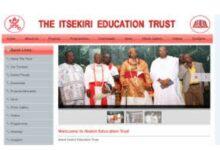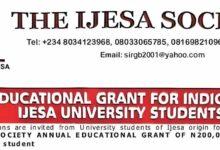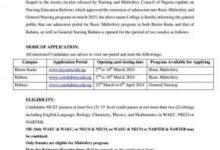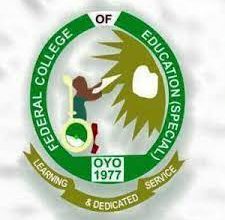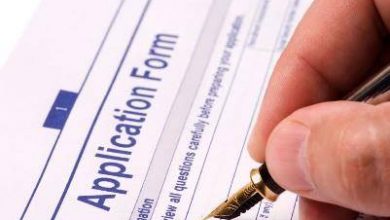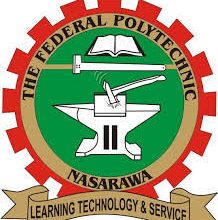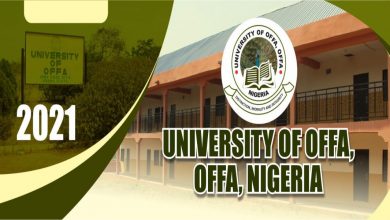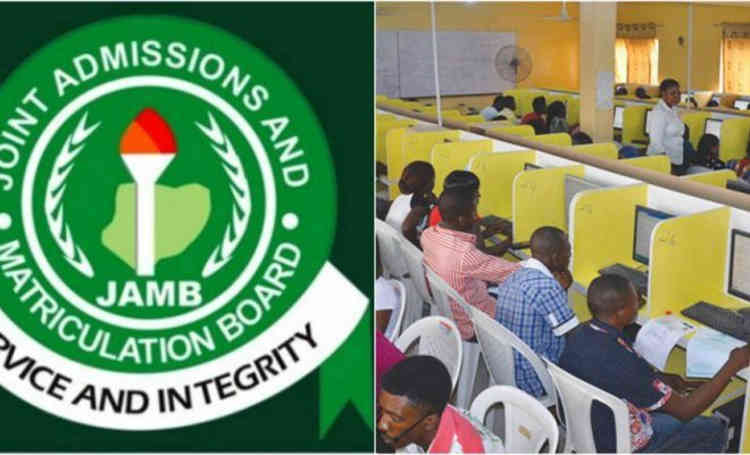
JAMB Government Syllabus 2023 and Recommended Texts for UTME
Are you preparing to sit for the JAMB Government Examination? If yes, then using the JAMB Government syllabus to study is the best way to prepare for the examination. As you may already know, the JAMB syllabus is the document which contains the recommended topics to study for the JAMB UTME examination.Information Guide Nigeria
The JAMB syllabus shows you where you will be tested in during your UTME exam. It is recommended that you focus your studies around the recommended topics, so as to successfully pass your JAMB UTME exam. That’s why in today’s post I’ll be showing you the complete JAMB syllabus for Government. So if you’re writing Government in your JAMB UTME, then carefully study using the syllabus contained in this post.
👉 Relocate to Canada Today!
Live, Study and Work in Canada. No Payment is Required! Hurry Now click here to Apply >> Immigrate to CanadaRead Also: WAEC Syllabus for Chemistry
Course Objective of the JAMB Government Syllabus
The 2023 JAMB Government syllabus has the following course objectives:
- Understand the true meaning of government;
- Analyze the framework and identify the government institutions;
- Consider the fundamental principles of democratic governance and their application in Nigeria.
- Explain the concept of citizenship and define a citizen’s duties and obligations.
- Appreciate Nigeria’s political development process;
- Analyze Nigeria’s political development and governance issues.
- Understand the determinants and dynamics of Nigerian foreign policy;
- Examine Nigeria’s role as a member of the international community and the operations of international organizations.
NOTE: The JAMB Government Syllabus is divided into Four Consecutive parts.
The Complete JAMB 2023 Government Syllabus
Below is the complete JAMB syllabus for Government:
Part I: Elements of Government
- Basic concepts in government
Topics:
Power, authority, legitimacy, sovereignty;
Society, state, nation, nation-state;
Political processes; political socialization, political participation, political culture.
👉 Relocate to Canada Today!
Live, Study and Work in Canada. No Payment is Required! Hurry Now click here to Apply >> Immigrate to CanadaObjectives:
Candidates should be able to:
- Identify the fundamental concepts in governance;
- Analyse various political processes;
- Forms of government
Topics:
Monarchy, aristocracy, oligarchy, autocracy, republicanism, democracy, definitions, features, merits, and demerits.
Objectives:
Candidates should be able to:
- Distinguish between different forms of government.
- Arms of government
Topics:
The legislature – types, structure, functions, powers;
The executive – types, functions, powers;
The judiciary – functions, powers, components.
Their relationships
Objectives:
Candidates should be able to:
- Identify the duties and obligations of the various arms of government and their agencies;
- Relate each arm to its functions;
- Appreciate how these arms interrelate.JAMB Government Syllabus
- Structures of governance
Topics:
Unitary – features, reasons for adoption, merits and demerits
Federal – features, reasons for adoption, merits and demerits
Confederal – features, reasons for adoption, merits and demerits.
Objectives:
Candidates should be able to:
- Compare the various political structures of governance.
- Systems of governance
Topics:
Presidential, parliamentary and monarchical.
Objectives:
Candidates should be able to:
- Distinguish between the different systems of governance.
- Political ideologies
Topics:
Communalism, feudalism, capitalism, socialism, communism, totalitarianism, fascism, nazism.
Objectives:
Candidates should be able to:
- Differentiate between the major political ideologies;
- Contrast modes of production
- Constitution
Read Also: WAEC Syllabus for Financial Accounting
Topics:
Meaning, sources, functions, types – written, unwritten, rigid and flexible.
Objectives:
Candidates should be able to:
- Define and identify sources and functions of constitutions;
- Compare the nature of constitutions.
- Principles of democratic government
Topics:
Ethics and accountability in public office, separation of power, checks and balances, individual and collective responsibility, constitutionalism, rule of law, representative government.Notable Differences Between Corn and Maize You Should Know
Objectives:
Candidates should be able to:
- Identify the principles of democratic government;
- Determine the application of these principles;
- Processes of legislation
Topics:
Legislative enactments – acts, edicts, bye-laws, delegated legislation, decrees.
Objectives:
Candidates should be able to:
- Analyse the processes involved in the making of laws.
- Citizenship
Topics:
Meaning, types;
Citizenship rights;
Dual citizenship, renunciation, deprivation;
Duties and obligations of citizens;
Duties and obligations of the state.
Objectives:
Candidates should be able to:
- Differentiate between the various methods of acquiring citizenship;
- Specify the rights and responsibilities of a citizen;
- Assess the obligations of the state.CAC Public Search 2023 See How to Confirm Nigerian Companies
- The electoral process
Topics:
Suffrage – evolution, types;
Election – types, ingredients of free and fair election;
Electoral system – types, advantages and disadvantages of each;
Electoral commission – functions, problems.
Objectives:
Candidates should be able to:
- Distinguish the different types of franchise
- Identify and explain the types of electoral systems
- Analyse the various electoral processes.
- Political parties and party systems
Topics:
Political parties – definition, organization, functions.
Party systems – definition, organization, functions.
Objectives:
- Candidates should be able to:
- Assess the role of political parties;
- Distinguish between types of party systems.
- Pressure groups
Topics:
Definition, types, functions and modes of operation.
Differences between pressure groups and political parties.
Objectives:
Candidates should be able to:
- Evaluate the functions and the modus operandi of pressure groups;
- Distinguish between pressure groups and political parties.
- Public opinion
Topics:
Meaning, formation and measurement.
Functions and limitations.
Objectives:
Candidates should be able to:
- Compare methods of assessing public opinion;
- Assess the functions of public opinion;
- Analyse the limitations of public opinion.Npower Recruitment
- The civil service
Topics:
Definition, characteristics, functions, structure, control and problems.
Objectives:
Candidates should be able to:
- Analyse the significance of civil service in governance.
Read Also: WAEC Syllabus for Literature-In-English
Part II: Political Development in Nigeria
- Pre-colonial polities
Topics:
Pre-jihad Hausa, emirate, Tiv, Igbo, Yoruba
Their structural organization;
The functions of their various political institutions.
Objectives:
Candidates should be able to:
- Appreciate the effectiveness of the pre-colonial political systems;
- Compare pre-colonial systems of governance.
- Imperialist penetration
Topics:
The British process of acquisition – trade, missionary activities, company rule, crown colony, protectorate;
The British colonial administrative policy – direct and indirect rule;
The French colonial administrative policy – assimilation and association;
Impact of British colonial rule- economic, political, socio-cultural;
Comparison of British and french colonial administration.
Objectives:
Candidates should be able to:
- Trace the processes of imperialist penetration;
- Assess the impact of British and french policies;
- Distinguish between British and french colonial practices.
- Process of decolonization
Topics:
Nationalism – meaning, types;
Nationalist movements – emergence, goals, strategies;
Nationalist leaders – herbert Macaulay, Nnamdi Azikiwe, Obafemi Awolowo, Ahmadu Bello, Ladipo Solanke, Aminu Kano, j. S. Tarka, tafawa balewa and others;
Emergence of nationalist parties;
Influence of external factors.
Objectives:
Candidates should be able to:
- Evaluate the process of decolonization;
- Assess the roles of nationalist leaders and parties;
- Assess the impact of external forces and ideas (pan-africanism, back-to-africa movements, second world war etc).
- Constitutional development in Nigeria
Topics:
Hugh Clifford constitution (1922)
Arthur Richards constitution (1946)
John Macpherson constitution (1951)
Oliver Lyttleton constitution (1954)
Independence Constitution (1960)
Their features, merits, and demerits.
Objectives:
Candidates should be able to:
- Compare the various constitutional developments.
- Post-independence constitutions
Topics:
1963, 1979, 1989, and 1999- characteristics and shortcomings.
Objectives:
Candidates should be able to:
- Assess the workings of the various constitutions.
Read Also: WAEC Syllabus for French
- Institutions of government in the post-independence Nigeria
Topics:
The legislative – structure, functions and working.
The executive – structure, functions and workings.
The judiciary – structure, functions and workings.
Objectives:
Candidates should be able to:
- Evaluate the operations of the arms of government and their agencies, e.g the civil service, armed forces, police, courts and others.
- Public commissions established by the 1979 and subsequent constitutions
Topics:
The civil service commission, the public complaints commission, electoral commissions, national boundary commission and others – objectives functions and problems.
Objectives:
Candidates should be able to:
- Evaluate the operations of public commissions;
- Assess the problems of the public commissions and their constraints.JAMB Form
- Political parties and party politics in post-independence Nigeria
Topics:
First republic
Second republic
Third republic
Fourth republic – evolution, membership spread, structure etc.
Objectives:
Candidates should be able to:
- Contrast political processes in the republics;
- Evaluate the ideologies, structure and composition of the political parties.
- The structure and workings of Nigerian federalism
Topics:
Rationale for a federal system;
Tiers of government and their relationship;
Creation of states – 1963, 1967, 1976, 1987, 1991, 1996;
Problems of nigerian federalism – census, revenue allocation, conflicts etc. Solutions e.g. Federal character, etc.WAEC Result
Objectives:
Candidates should be able to:
- Examine the workings of nigerian federalism;
- Identify its problems;
- Evaluate the corrective measure adopted.
- Public corporations and parastatals
Topics:
Definition, types, purpose and functions;
- Finance, control and problems;
- Deregulation, privatization, commercialization – objectives, features, merits and demerits;
- Comparison between public corporations and parastatals.
Objectives:
Candidates should be able to:
- Examine the operations of public corporations and parastatals;
- Identify the processes involved in privatization and commercialization;
- Assess the economic importance of privatization and commercialization.
- Local government
Topics:
Local government administration prior to 1976;
Features of local government reforms (1976, 1989) – structure, functions, finance and inter-governmental relations;
Traditional rulers and local governments;
Problems of local government administration in Nigeria.
Objectives:
Candidates should be able to:
- Trace the evolution and structure of local government;
- Identify the major problems faced by local governments.
- The military in Nigerian politics
Topics:
Factors that led to military intervention;
Structure of military regimes;
Impact of military rule – political, e.g creation of states, the introduction of unitary system (unification decree no. 34) etc. Economic, e.g sap, etc.
Processes of military disengagement.
Objectives:
Candidates should be able to:
- Evaluate the reasons given for military intervention;
- Assess the achievements of military rule;
- Determine the conditions that necessitated withdrawal from governance.
- Political Development in NigeriaJAMB Result
Part III: Foreign Policy and Nigeria’s Relations with the International Community
- Foreign policy
Topics:
Definition, purpose, determining factors; formulation and implementation.
Objectives:
Candidates should be able to:
- Define foreign policy, identify and explain its determinants
- Nigeria’s foreign policy
Topics:
Relations with major powers;
Relations with developing countries, e.g the technical aid corps (tac), etc.
Nigeria’s non-alignment policy.
Objectives:
Candidates should be able to:
- Identify the major objectives of Nigeria’s foreign policy.
- Analyse Nigeria’s non-aligned posture.
- Relations with African countries
Topics:
Africa as the “centre piece” of Nigeria’s foreign policy – guiding principles, implementation and implications;
Nepad – origin, objectives and implications.
Objectives:
Candidates should be able to:
- Evaluate the role of Nigeria in continental affairs;
- Assess the role of nepad in developing Africa.
- Nigeria in international organizations
Topics:
The united nations;
The commonwealth;
The organization of African unity;
The African Union;
The economic community of west African states (ecowas);
The organization of petroleum exporting countries (opec).
Objectives:
Candidates should be able to:
- Analyse the dynamics of Nigeria’s involvement in international organizations;
- Assess their contribution to the development of Nigeria.
Part IV: International Organizations
- International organizations
Topics:
Ecowas;
Oau, au;
Commonwealth;
Opec;
Uno;
African petroleum producers association;
Origin, objectives, structure, functions, achievements, problems and prospects of these organizations.
Objectives:
Candidates should be able to:
- Evaluate the operations of these international organizations;
- Assess the role of these organizations in world affairs;
- Appreciate the challenges of these organizations and how they can be overcome.
Read Also: WAEC Syllabus for Food And Nutrition
The JAMB Recommend Textbooks for Government
Below are the recommended textbooks to study for JAMB UTME Government exam:
- Adigwe, F (1985) Essentials of Government for West Africa, Ibadan: University Press Plc.
- Anifowose, R and Enemuo, F. C (eds)(1999) Elements of Politics, Lagos; Malthouse Press Limited.
- Appadorai, A. (1978) The Substance of Politics, London: Oxford University Press.
- Ball, A. R. (1983) Modern Politics and Government, London: Macmillan.
- Ofoegbu, R. (1977) Government for the Certificate Year, London: George Allen and Unwin.
- Olawale, J. B (1987) New Topics on Ordinary Level Government, Ilesha: Jola Publishing.
- Oyediran, O. Nwosu, H., Takaya, B., Anifowoshe, R., Femi, B., Godwill, O. And Adigun, A. (1990) Government for Senior Secondary Schools, Books 1, 2 and 3, Ibadan: Longman.
- Oyeneye, I., Onyenwenu, M. And Olusunde, B. E. (2000) Round-Up Government for Senior Secondary School Certifcate Examination: A Complete Guide, Ibadan: Longman.
- Oyovbaire, S., Ogunna, A. E. C., Amucheazi, E. C., Coker, H. O. And Oshuntuyi, O. (2001) Countdown to Senior Secondary Certificate Examination: Government, Ibadan: Evans.
Check JAMB Result
Check and Confirm: How much is Dollar to Naira Pounds to Naira today
